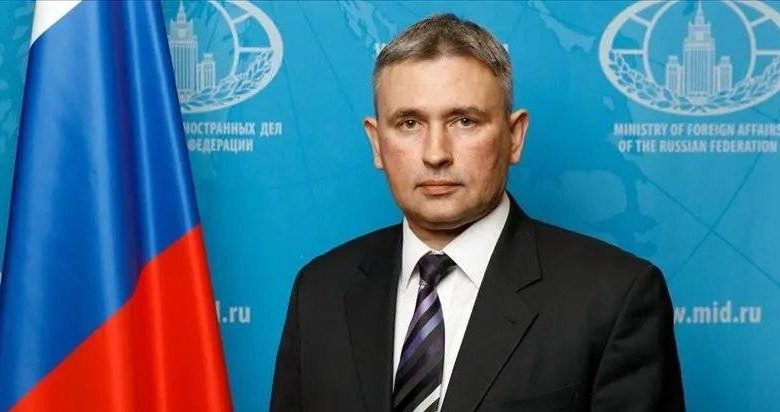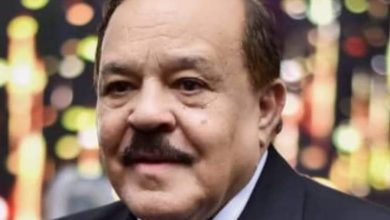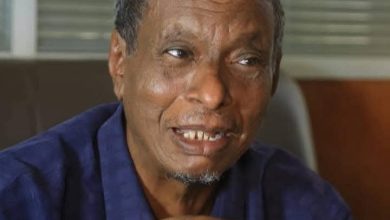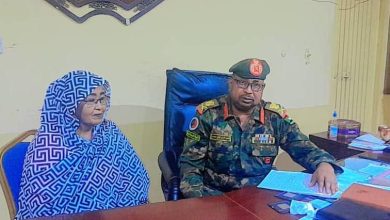Russian Ambassador to Sudan Interview: 80% of the Rapid Support Forces Composed of Arab Mercenaries from African Sahel States
"Taggatoom" Lacks Domestic Support

Agencies – Interview
Russian Ambassador to Sudan Andrei Georgievich stated that 80% of the Rapid Support Forces (RSF) are composed of Arab mercenaries from the African Sahel states. He emphasized that it is difficult to categorize the current situation in Sudan as a traditional civil war.
The Russian ambassador noted that civilians are fleeing en masse from areas under RSF control, adding, “This is not surprising, as fighters regularly carry out retaliatory actions and conduct ethnic cleansing in Darfur states, replacing the majority African population with Arab loyalists. Since May and June, the displacement of farmers from agricultural lands and crop destruction have become a new trend aligned with a ‘famine creation’ strategy, reportedly endorsed by some UN entities.” He added, “Since March, despite facts and reports from their own staff on the ground, senior international officials began to ‘raise alarms’ about the failure of the spring agricultural season. When this did not happen, RSF forces suddenly, without any clear military necessity, disrupted the winter planting season.”
He accused Taggatoom, which represents the official political wing of the rebels, of being a small remnant of a Western-aligned elite that fled abroad. He estimated that Taggatoom had a pre-crisis electoral base of less than 4%, which is now even lower. “They are entirely dependent on funding from the United States, the United Kingdom, and the European Union, alongside a network of NGOs and other ‘grant beneficiaries’ that the West terms the ‘Sudanese civil society.'”
In Sudan, civil war has been raging since April 2023. Ambassador Andrei Georgievich, are there any prospects for reconciliation?
It’s widely understood that foreign actors play an active role in the conflict, which does not facilitate peace. The United States and the United Kingdom, in particular, continue to fuel the conflict under the guise of goodwill efforts. The British, driven by post-colonial instincts, also influence the UN’s efforts, complicating the search for peace. As is well-known, most Sudanese oppose such “peace-making” endeavors. Like other diplomatic missions, our embassy was relocated to the safe city of Port Sudan on the Red Sea.
It is hard to describe the current situation in the Republic of Sudan as a civil war in the traditional sense. We have a legitimate, internationally recognized government that enjoys the support of the vast majority of the population and nearly all political forces, including former armed groups and pro-military authorities, whom Western propaganda labels as “Islamists driven by revenge.” The reality is quite different; in Port Sudan, one can easily meet most civilian blocs, including the opposition—from members of the political office of the country’s largest party, the Umma Party, as well as the Unionists, Ba’athists, and even the Communists who adopt the “revolutionary youth” stance. These revolutionary youth express clear opposition to the generals in power, viewing them all as “coup leaders” whom they intend to fight politically once the rebels are defeated.
On the other side, there are the RSF, though currently, 80% of their ranks consist of Arab mercenaries from the African Sahel region. This dynamic is clearly reflected in the movement of displaced people: people are fleeing RSF-controlled areas en masse. This is not surprising, as the fighters regularly carry out retaliatory actions and ethnic cleansing in Darfur states, where the African population is in the majority, replacing them with loyal Arabs. Since May and June, the displacement of farmers and destruction of crops have aligned with a new “famine creation” strategy, reportedly endorsed by some UN agencies. Since March, despite available reports from their personnel, international senior officials started “sounding the alarm” about a failed spring planting season. When this did not happen, RSF forces abruptly and without military necessity disrupted the winter planting season.
Returning to the rebels’ official political wing, this group represents the remaining few pro-Western elites who fled abroad, now forming the coalition known as “Taggatoom.” These individuals lack domestic support, with their pre-crisis electoral strength estimated below 4%, and even less today. They are fully reliant on financial support from various Western funds, including the U.S., the U.K., and the EU. Additionally, there is a network of NGOs and other “grant beneficiaries” termed by the West as the “Sudanese civil society,” financed by agencies such as USAID and UKAID.
In our view, this is not a civil war. Volker Perthes, head of the UN Integrated Transition Assistance Mission in Sudan (UNITAMS), worked hard to ignite a full-scale internal political conflict but failed. The local pro-Western base was too weak, even as Perthes tried to capitalize on Khartoum’s reconciliation with nearly all former adversaries, such as the Sudan People’s Liberation Movement-North (SPLM-N), the Justice and Equality Movement, and other armed factions. Hence, on April 15, 2023, a shift to “Plan B” was decided upon, involving an attempted rapid RSF coup. It was hoped to be completed in a maximum of three days, but it did not unfold as planned.
Despite numerous challenges, including tribal and clan conflicts, the Sudanese Armed Forces have withstood these obstacles, reaffirming their position as the sole institution capable of state-building and maintenance. With the initial shock receding, all nationalists have begun to rally behind the army, even if with some reservations.
Of course, some local Arab tribes still side with the Dagalo family. The backbone of their forces is formed by the Rizeigat tribe of Darfur, with allies in parts of the Halba and Hamar tribes in the west, and sections of the Hawazma tribe in Kordofan. However, the vast majority of these tribes, especially the Rizeigat chieftains, have long abandoned the rebels. The reason is straightforward: they have lost their best fighters and are now threatened with losing their position in competition with Africans and Sahel mercenaries joining the RSF ranks.
Your question about national reconciliation does not align with reality. Yes, the current armed conflict has effectively united the vast majority of Sudanese, with the threat of state loss compelling everyone to put aside differences for the time being. Achieving consensus on the issues at hand isn’t easy, but it’s entirely possible. The war is, as the Sudanese say, a proxy war imposed by regional and international powers. Therefore, even if a ceasefire agreement is reached, the causes of the conflict will remain. Thus, solutions must at least be sought on a regional level.
For the United States, the primary goal is to prevent “the presence of Russia, China, and Iran in Sudan,” as stated by American officials publicly on multiple occasions. Amid a heated election race, the U.S. seeks any positive outcome, with Sudan being a priority. A large part of the current elite made their names on the “Darfur issue” and the struggle against “the regime of Omar al-Bashir,” who hosted Osama bin Laden and other international terrorists. Thus, we see the U.S. Special Envoy, Tom Perriello, shuttling between Jeddah and Geneva, promising everything and planning a visit to Port Sudan in October with USAID Administrator Samantha Power.
Meanwhile, the British remain consistent, holding the Sudan file at the UN Security Council with the clear aim of using the RSF to restore their client democratic regime. If this fails, as appears likely, their goal is to create a permanent point of instability threatening the collapse of existing states. Why? To block access to the Sahel and Central Africa for Moscow and its allies, or the Global South in general. All methods, from pushing for open borders under the pretext of an imminent humanitarian catastrophe to presenting biased reports and complaints, are deemed legitimate.
In contrast, Sudanese support flows from Iran, Qatar, Saudi Arabia, Kuwait, Egypt, Turkey, and Malaysia. Soon, our Chinese friends are expected to join. It seems the turmoil experienced during the Western-aligned Hamdok administration from 2019 to 2021 is now behind us.
Our work in the temporary administrative capital, Port Sudan, is currently proceeding smoothly. We cooperate closely with local authorities and our Arab, African, and Asian counterparts. Meanwhile, representatives of unfriendly countries left Sudan in 2023 and haven’t returned.
Regarding security, the situation is stable, with combat zones distant, and no signs yet of a drastic deterioration. Our Sudanese friends, as always, remain confident in a swift victory.
Amid the internal instability and conflict, the longstanding friendly ties between Sudan and Russia have decreased, though bilateral cooperation and trade continue. Russian cultural diplomacy is also active, with a recent MoU signed in September at the Tenth International Cultural Forum in St. Petersburg. Deputy Foreign Minister Mikhail Bogdanov visited Sudan, fostering national consensus and peace efforts.
How do you see the future of Russian-Sudanese cooperation?
To start, the Sudanese stance is not just “positive”; there is clear intent to reach a strategic partnership. This decision by Sudan’s top leadership followed Mikhail Bogdanov’s historic visit in April 2024, later accompanied by other high-level exchanges between the two countries. End-of-year or early next year, we aim to hold the eighth session of the joint ministerial committee.
Trade continues at pace. Notably, trade volume returned to pre-revolution levels by 2022, following a period of decline under Abdullah Hamdok’s administration. However, there’s a clear trade imbalance, with us exporting grains, vegetable oils, and fertilizers but importing very little from Sudan. The Russian-Suda
nese Business Council is working to address this.



